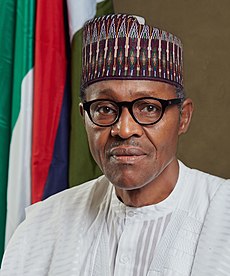The Central Bank of Nigeria has said the recent decline in the nation’s foreign exchange reserves and capital outflows from the country are not a cause for worry.
The external reserves, which rose to a high of $47.865bn on May 10, fell to $46.461bn on August 15, while the nation has seen an outflow of foreign portfolio investment from the stock market in recent months.
“In this country, we survived when the reserves was at $24bn; from there, we moved to $31bn, and now we are at about $47bn. So, I don’t see why we should be worried about this. Our reserves position is so comfortable that we can deal with any eventuality,” the Acting Director, Corporate Communications, CBN, Mr Isaac Okorafor, said on Thursday at a press briefing after the Bankers’ Committee in Lagos.
He said the capital reversals were not as much as expected, adding, “We are even in a better position of confidence.”
The Director of Banking Supervision, CBN, Mr Ahmed Abdullahi, said the outlook for the economy this year was much better than that of 2017.
He said, “We have seen stability in the exchange rate being sustained, GDP growth higher than 2017. There are capital reversals in our capital market, and it is a little bit bearish but the fact is that capital outflow in the Nigerian economy is far less compared to many emerging economies. It is a sign that there is high confidence in the Nigeria economy. We are happy with the developments in the economy generally.”
The Managing Director, Guaranty Trust Bank Plc, Mr Segun Agbaje, described the macros as very stable and positive, adding the Monetary Policy Committee of the CBN and the Bankers’ Committee were committed to stimulating the economy.
He said, “You have heard about commercial papers or bonds that would be issued; the guidelines would come out very soon. The aim is two-fold: to stimulate certain sectors, starting with agriculture and manufacturing. So, it allows people to do capital expenditure, which is more long term; it would give people single-digit interest rate loans.
“On the part of banks, the CBN has been very gracious and said that, ‘In these two sectors, if you have companies that are doing new capital expenditures and expansions to factories, you would be able to lend them using some of your Cash Reserve Ratio at nine per cent.’ These are not short-term loans; they are seven-year loans, with two year moratorium on principal.
“It would probably be the first time in the history of this country where manufacturers would be able to take fixed interest rate loans for seven years, which means they would be able to plan. I think these are very laudable steps in improving and growing the economy.”
The Executive Director, Finance, FCMB, Mrs Yemisi Edun, said the CRR taken from banks would be positively deployed to grow the real sector as well as the agriculture sector.
She said, “This is very positive for the economy and for banks because we would be able to access these funds and earn on it. And because it would be coming at single digit rate, it would be positive for the economy.”




